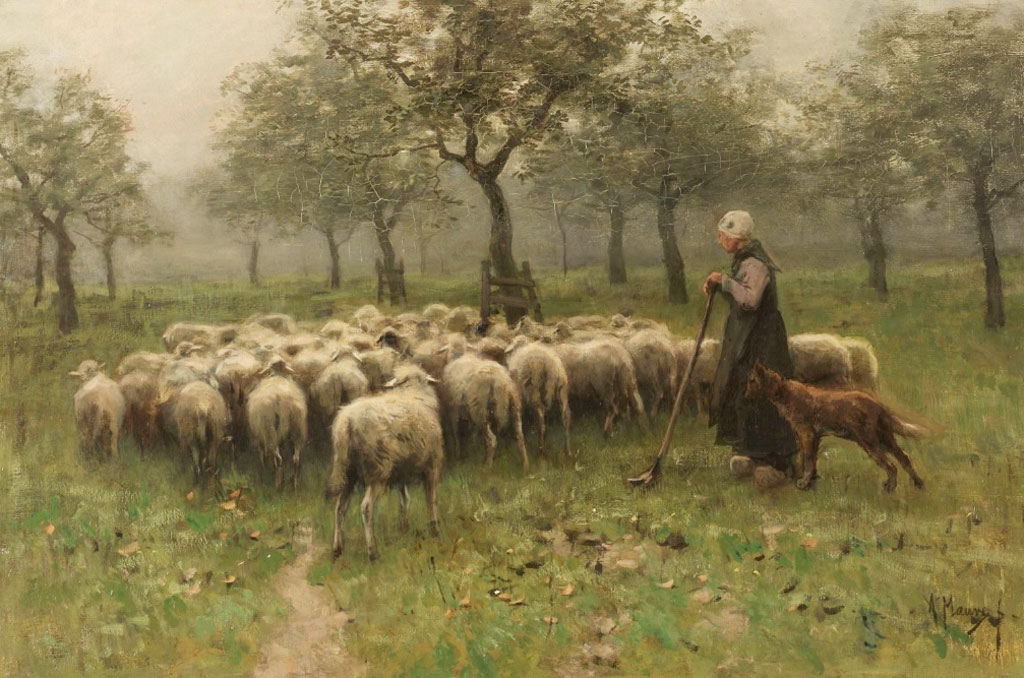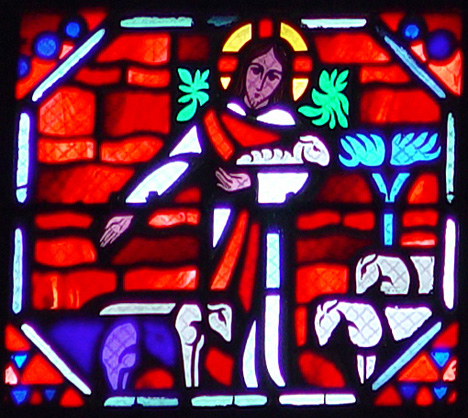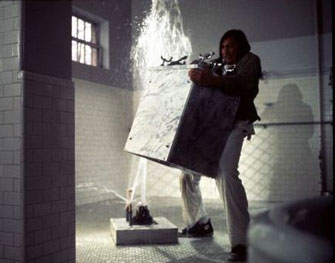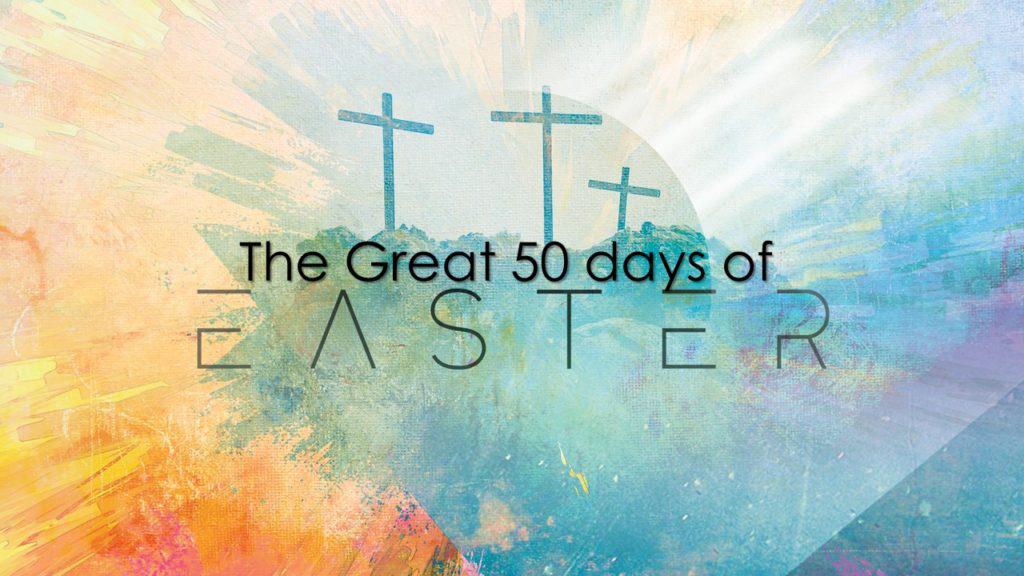
Shepherdess with a Flock of Sheep, by Anton Mauve, c. 1870-88, Dutch painting, oil on canvas
1. This is the 4th week of Eastertide The gospel readings for the first three weeks were resurrection appearance stories; the next four weeks will explore Jesus’ teachings about living in intimacy with God.
2. Many early followers of Jesus would have been familiar with describing the promised messiah as a caring and skillful “shepherd”: Isaiah, Jeremiah, and Ezekiel each use such language, and likewise, Jeremiah, Ezekiel, and Zechariah contrast the divine shepherd with “worthless shepherds” who neglect, exploit, and scatter the flock. For listeners today, Psalm 23 (this week’s psalm) is likely the best-known reference to God as a shepherd, with the “rod and staff” evoking the hazards of the wilderness: the rod is for fending off wolves and lions, and the staff for rescuing sheep trapped in thickets or crevasses.
3. In the phrase “good shepherd,” the Greek word translated as “good” (kalos) means not “morally good” but rather “real and proper” or “true,” as in, “I am the true shepherd” or “I am the genuine shepherd.”
4. The goal of the true shepherd’s work is to give the sheep abundant life. For John, Jesus’ death makes possible this surprising chain of events, this grand reversal and ever-opening entrée into “abundant life.” It’s for the sake of this chain of events, and ultimately that abundant life, that “the good shepherd lays down his life for the sheep.” And what is “abundant life”? According to John, it’s a life of love and intimacy with God . To give the sheep this vibrant fullness of life, Jesus is willing to lay down his own.
5. Both Jesus and Peter frame the crucifixion as an enactment of the psalm’s ancient choreography: a stone is rejected, but it then becomes the cornerstone (or “the keystone”) of an even greater edifice. For Peter, that edifice is the community of the church — and similarly, for John, the fact that Jesus is rejected and killed ultimately makes possible his resurrection, ascension, and the birth of that community. Unbeknownst to his killers, Jesus’ death is just the first act in this larger drama.
6. Beneath and throughout all of this is the dynamic of an ever-expanding circle of salvation. The Jewish messiah, Luke and John and the whole New Testament insists, will also welcome Gentiles ( Jews + Gentiles = everyone!). Jesus ascends and “will draw all people to myself” (John 12:32). In this week’s passage from John, Jesus puts the same theme this way: “I have other sheep that do not belong to this fold” (John 10:16). Precisely who these sheep are is left unspecified; that’s the shepherd’s business, not ours. The practical effect of this teaching for us today is that we dare not imagine anyone to be outside of God’s love and care (even those who reject Jesus!); as Jesus himself hints, in the end the flock may well include “all people” (John 12:32).
![]()













 Easter 4 – Good Shepherd Sunday
Easter 4 – Good Shepherd Sunday